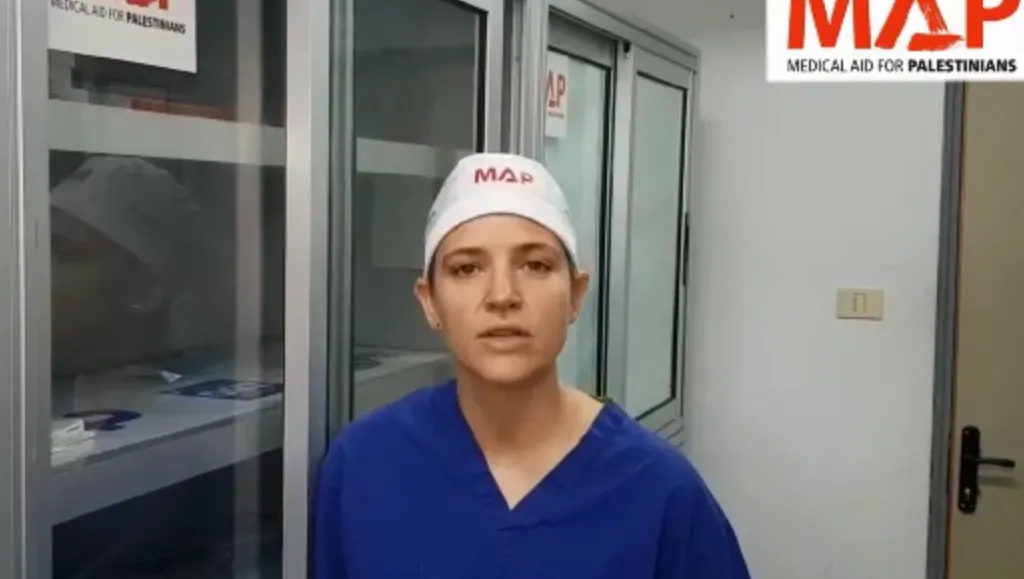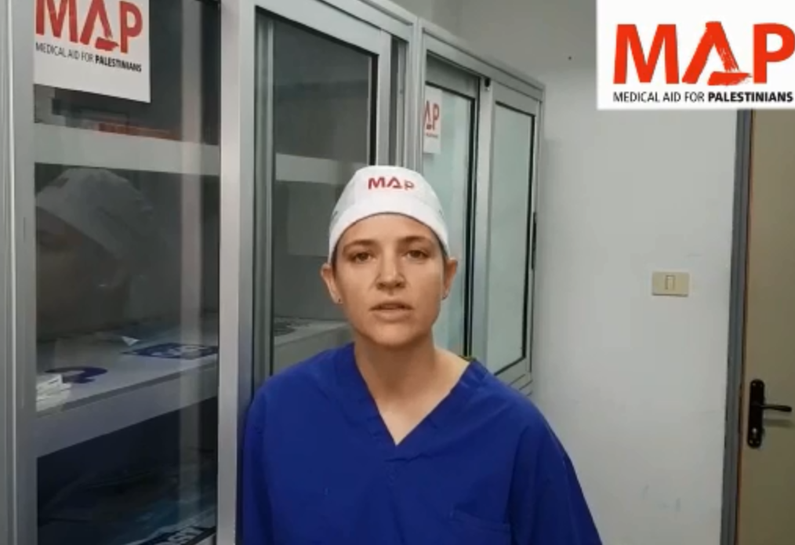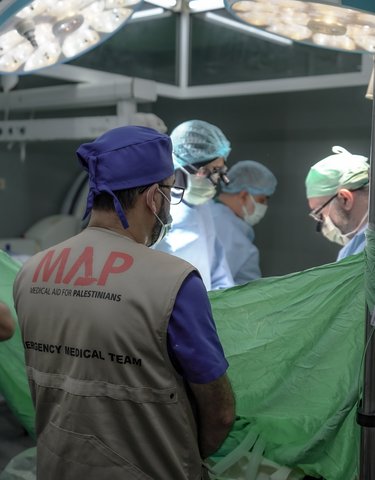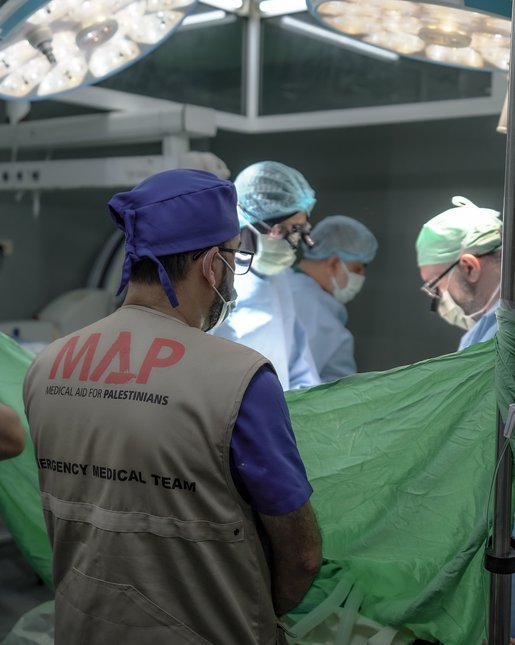Latest limb reconstruction delegation returns from Gaza
30 August 2019


More than 7,300 of those injured have received gunshot wounds, mostly to their limbs, and at least 1,300 people and rising every week have injuries that are particularly devastating - involving significant bone loss and requiring up to two years of expensive and painful specialist treatment to prevent amputation or return the limb to functioning.
Within this context of ever-growing casualties entering a health sector teetering on the edge of collapse, the work of Medical Aid for Palestinians (MAP) and our partner IDEALS is more vital than ever.
As part of our ongoing work supporting complex surgeries in Gaza, our fourth limb reconstruction surgical mission of 2019 – involving a multidisciplinary team of orthopaedic surgeons, plastic surgeons and radiographers from the UK – entered Gaza last week. The team conducted clinics and surgeries alongside their Palestinian colleagues, as well as holding a training symposium over their five day visit.
Dr Victoria Rose, Consultant Plastic Surgeon from King’s College Hospital in London, was a member of the team. In the video below she describes some of their work over the week, mostly focusing on patients with gunshot wounds to their legs. She explains how lack of resources to treat such injuries in Gaza is affecting care for these patients:
“These injuries are a lot more complex than the team normally deals with back in London, mainly due to the delays in presentation, so we’re seeing a lot of injured patients that have had treatment in their local hospitals without the adequate equipment and resources.”
MAP is not only facilitating six limb reconstruction surgical missions to Gaza this year, we are also procuring the essential equipment needed to give patients the best possible outcomes, including external frames (known as “fixators”) to stabilise limbs during treatment, DBX putty which acts as substitute bone, and Stimulan, which helps prevent or treat bone infections that can be a major cause of disability in patients with limb injuries.
Faced with such a high caseload of complex injuries, Dr Rose outlines how vital your support is to continue to save limbs in Gaza:
“The work here is extremely labour intensive, requiring a huge amount of kit, and we really need your money and support so we can continue doing this.”
Please consider making a donation today, to help MAP provide this essential support to Gaza:

